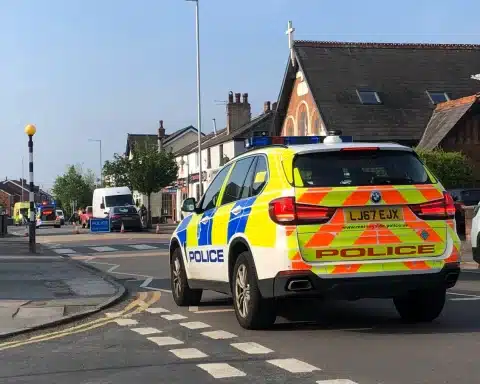Leading charity praises Liverpool hospital for ten years of tinnitus support
The head of a leading charity has praised the work of Liverpool clinicians who are celebrating 10 years of providing a tinnitus support group for patients across the region.
David Stockdale, Chief Executive of the British Tinnitus Association, applauded the work of staff at Aintree University Hospital, who set up the support group in 2008 as a place for patients to meet and share their experiences of living with the condition.
Tinnitus, which around 10-15% of adults in the UK have persistently, is the perception of noises in the head or ear which have no external source. Those living with the condition may have to endure a ringing, buzzing, hissing or whistling noise in their ears.
The support group at Aintree, which meets every month, regularly has 30-40 people in attendance from across Merseyside and North Wales.
David Stockdale said: “Tinnitus affects a large number of people and it can be a very isolating thing to experience. Being part of a group of people who have tinnitus, where you can share experiences and ways of managing it, can provide such relief. The team at Aintree were among the first in the country to set up a support group that is professionally led and I applaud the work they have done, which has made such a difference to so many people. I’m pleased to say we now have almost 100 support groups established around the country, but Aintree has really led the way on this.”
Tony Kay, Head of Audiology Services at Aintree University Hospital, said: “It’s great to see how our patients have benefited from sharing their experiences – I think it’s the exchange of experiences and coping strategies that explains the success of the group. We regularly have expert speakers from outside the organisation hosting discussions on topics such as relaxation, mindfulness and yoga.
“I see the role of support groups to work alongside good clinical tinnitus services, providing additional information and support to those living with tinnitus, and their significant others. The Aintree Tinnitus Support Group meets in the evening outside of normal clinical hours, thanks to the dedication of the team and our patients.”
A 2015 survey by the British Tinnitus Association found that 98% of respondents gained a sense of reassurance from being part of a support group and 94% indicated an improvement in their emotional wellbeing as a result of attending a support group.
Rob’s story
Rob Cannon, 61, from Aintree, was diagnosed with tinnitus in 1995. He woke up one morning, following a procedure to remove two teeth, and noticed a buzzing sound. It was only after checking every room in the house that he realised there was nothing causing the sound – it was in his head.
Rob, a retired local government worker, said: “Panic set in when I realised the sound was in my head. I went to my GP but at that time there was very little awareness of tinnitus, so I was basically told to get on with it.”
Although he lived with his partner, Val, he still found the condition very isolating. He learned his own coping mechanisms, such as going for walks and having talk radio on in the background as he slept, which helped him manage his tinnitus.
It was only in 2008, more than 10 years since his first diagnosis, that he heard about the tinnitus support group being set up at Aintree University Hospital and was finally able to speak to people who knew what he was going through. Rob attended the first meeting in April 2008 and has been a regular attender since.
He said: “Friends and family were very sympathetic but none of them have tinnitus and it’s only when you speak to people who are going through the same experience that you start to feel less alone.
“I was relieved to learn that the coping mechanisms I’d discovered on my own are also among those recommended at Aintree’s tinnitus clinic.”
Rob has been a regular at the tinnitus support group ever since and has now reached a point where his tinnitus is no longer present, although he is aware it can flare up at any point.
He said: “I got so much out of the support group so I’ve kept going because I want to help newly diagnosed people and show them that, with the right coping mechanisms and support, you can manage your tinnitus and in some cases, like mine, get rid of it altogether.”
The Everton fan is a regular at the football, but he now always makes sure to take ear plugs to protect his hearing.
He added: “With the right support and management, it is possible to carry on with life as normal and I would encourage anyone who has been diagnosed to come along and see what support is available. The group at Aintree has made a huge difference to my life.”













OTS News on Social Media